
Pourquoi relire Koestler?
Entretien avec Robert Steuckers à l’occasion de ses dernières conférences sur la vie et l’oeuvre d’Arthur Koestler
Propos recueillis par Denis Ilmas
DI: Monsieur Steuckers, vous voilà embarqué dans une tournée de conférences sur la vie et l’oeuvre d’Arthur Koestler, un auteur quasi oublié aujourd’hui, peu (re)lu et dont les livres ne sont plus tous réédités. Pourquoi insistez-vous sur cet auteur, quand commence la seconde décennie du 21ème siècle?
RS: D’abord parce que j’arrive à l’âge des rétrospectives. Non pas pour me faire plaisir, même si cela ne me déplait pas. Mais parce que de nombreuses personnes, plus jeunes que moi, me posent des questions sur mon itinéraire pour le replacer dans l’histoire générale des mouvements non conformistes de la seconde moitié du 20ème siècle et, à mon corps défendant, dans l’histoire, plus limitée dans le temps et l’espace, de la “nouvelle droite”. Commençons par l’aspect rétrospectif: j’ai toujours aimé me souvenir, un peu à la façon de Chateaubriand, de ce moment précis de ma tendre adolescence, quelques jours après que l’on m’ait exhorté à lire des livres “plus sérieux” que les ouvrages généralement destinés à la jeunesse, comme Ivanhoe de Walter Scott ou L’ile au trésor de Stevenson, Les trois mousquetaires de Dumas, Jules Vernes, ou à l’enfance, comme la Comtesse de Ségur (dont mon préféré était et reste Un bon petit diable) et la série du “Club des Cinq” d’Enid Blyton (que je dévorais à l’école primaire, fasciné que j’étais par les innombrables aventures passées derrière des portes dérobées ou des murs lambrisés à panneaux amovibles, dans de mystérieux souterrains ou autres passages secrets). Rien que cette liste de livres lus par un gamin, il y a quarante, quarante-cinq ans, évoque une époque révolue... Mais revenons à ce “moment” précis qui est un petit délice de mes reminiscences: j’avais accepté l’exhortation des adultes et, de toutes les façons, la littérature enfantine et celle de la pré-adolescence ne me satisfaisaient plus.
Koestler m’accompagne maintenant depuis plus de quarante ans
Mais que faire? Sur le chemin de l’école, tout à la fin de la Chaussée de Charleroi, à trente mètres du grand carrefour animé de “Ma Campagne”, il y avait un marchand de journaux qui avait eu la bonne idée de joindre une belle annexe à son modeste commerce et de créer une “centrale du Livre de Poche”. Il y avait, en face et à droite de son comptoir, un mur, qui me paraissait alors incroyablement haut, où s’alignaient tous les volumes de la collection. Je ne savais pas quoi choisir. J’ai demandé un catalogue et, muni de celui-ci, je suis allé trouver le Frère Marcel (Aelbrechts), vieux professeur de français toujours engoncé dans son cache-poussière brunâtre mais cravaté de noir (car un professeur devait toujours porter la cravate à l’époque...), pour qu’il me pointe une dizaine de livres dans le catalogue. Il s’est exécuté avec complaisance, avec ses habituels claquements humides de langue et de maxillaires, par lesquels il ponctuait ses conseils toujours un peu désabusés: l’homme n’avait apparemment plus grande confiance en l’humanité... Dans la liste, il y avait Un testament espagnol d’Arthur Koestler. Je l’ai lu, un peu plus tard, vers l’âge de quinze ans. Et cet ouvrage m’a laissé une très forte impression. Koestler m’accompagne donc depuis plus de quarante ans maintenant.
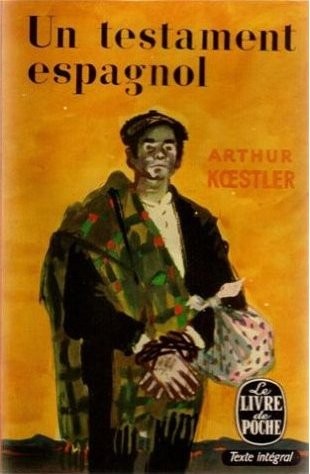 Le Testament espagnol de Koestler est un chef-d’oeuvre: la déréliction de l’homme, qui attend une exécution promise, les joies de lire dans cette geôle, espace exigu entre deux mondes (celui de la vie, qu’on va quitter, et celui, de l’“après”, inconnu et appréhendé), la fatalité de la mort dans un environnement ibérique, acceptée par les autres détenus, dont “le Poitrinaire”... A quinze ans, une littérature aussi forte laisse des traces. Pendant deux bonnes années, Koestler, pour moi, n’a été que ce prisonnier anglo-judéo-hongrois, pris dans la tourmente de la Guerre Civile espagnole, cet homme d’une gauche apparemment militante, dont on ne discernait plus tellement les contours quand s’évanouissait les vanités face à une mort qu’il pouvait croire imminente.
Le Testament espagnol de Koestler est un chef-d’oeuvre: la déréliction de l’homme, qui attend une exécution promise, les joies de lire dans cette geôle, espace exigu entre deux mondes (celui de la vie, qu’on va quitter, et celui, de l’“après”, inconnu et appréhendé), la fatalité de la mort dans un environnement ibérique, acceptée par les autres détenus, dont “le Poitrinaire”... A quinze ans, une littérature aussi forte laisse des traces. Pendant deux bonnes années, Koestler, pour moi, n’a été que ce prisonnier anglo-judéo-hongrois, pris dans la tourmente de la Guerre Civile espagnole, cet homme d’une gauche apparemment militante, dont on ne discernait plus tellement les contours quand s’évanouissait les vanités face à une mort qu’il pouvait croire imminente.
En 1973, nous nous retrouvâmes en voyage scolaire, sous le plomb du soleil d’août en Grèce. Marcel nous escortait; il avait troqué son éternel cache-poussière contre un costume léger de coton clair; il suivait la troupe de sa démarche molle et avec la mine toujours sceptique, cette fois avec un galurin, type bobo, rivé sur son crâne dégarni. Un jour, alors que nous marchions de l’auberge universitaire, située sur un large boulevard athénien, vers une station de métro pour nous amener à l’Acropole ou à Egine, les “non-conformistes” de la bande —Frédéric Beerens, le futur gynécologue Leyssens, Yves Debay, futur directeur des revues militaires Raids et L’Assaut et votre serviteur— tinrent un conciliabule en dévalant allègrement une rue en pente: outre les livres, où nous trouvions en abondance notre miel, quelle lecture régulière adopter pour consolider notre vision dissidente, qui, bien sûr, n’épousait pas les formes vulgaires et permissives de dissidence en cette ère qui suivait immédiatement Mai 68? Nous connaissions tous le mensuel Europe-Magazine, alors dirigé par Emile Lecerf. La littérature belge de langue française doit quelques belles oeuvres à Lecerf: inconstestablement, son essai sur Montherlant, rédigé dans sa plus tendre jeunesse, mérite le détour et montre quelle a été la réception de l’auteur des Olympiques, surtout chez les jeunes gens, jusqu’aux années de guerre. Plus tard, quand le malheur l’a frappé et que son fils lui a été enlevé par la Camarde, il nous a laissé un témoignage poignant avec Pour un fils mort à vingt ans. Lié d’amitié à Louis Pauwels, Lecerf était devenu le premier correspondant belge de la revue Nouvelle école. Beerens avait repéré une publicité pour cette revue d’Alain de Benoist qui n’avait alors que trente ans et cherchait à promouvoir sa création. En dépit de l’oeuvre littéraire passée d’Emile Lecerf, que nous ne connaissions pas à l’époque, le style journalistique du directeur d’Europe-Magazine nous déplaisait profondément: nous lui trouvions des accents populaciers et lui reprochions trop d’allusions graveleuses. Nous avions soif d’autre chose et peut-être que cette revue Nouvelle école, aux thèmes plus allèchants, allait-elle nous satisfaire?
Koestler et la “nouvelle droite”: le lien? La critique du réductionnisme!
Le conciliabule ambulant d’Athènes a donc décidé de mon sort: depuis cette journée torride d’août 1973 à Athènes, je suis mu par un tropisme qui me tourne immanquablement vers Nouvelle école, même vingt après avoir rompu avec son fondateur. Dès notre retour à Bruxelles, nous nous sommes mis en chasse pour récupérer autant de numéros possible, nous abonner... Beerens et moi, après notre quête qui nous avait menés aux bureaux du magazine, rue Deckens à Etterbeek, nous nous sommes retrouvés un soir à une séance du NEM-Club de Lecerf, structure destinée à servir de point de ralliement pour les lecteurs du mensuel: nouvelle déception... Mais, dans Nouvelle école puis dans les premiers numéros d’Eléments, reçus en novembre 1973, un thème se profilait: celui d’une critique serrée du “réductionnisme”. C’est là que Koestler m’est réapparu. Il n’avait pas été que cet homme de gauche romantique, parti en Espagne pendant la guerre civile pour soutenir le camp anti-franquiste, il avait aussi été un précurseur de la critique des idéologies dominantes. Il leur reprochait de “réduire” les mille et un possibles de l’homme à l’économie (et à la politique) avec le marxisme ou au sexe (hyper-problématisé) avec le freudisme, après avoir été un militant communiste exemplaire et un vulgarisateur des thèses de Sigmund Freud.
A mes débuts dans ce qui allait, cinq ans plus tard, devenir la mouvance “néo-droitiste”, le thème majeur était en quelque sorte la résistance aux diverses facettes du réductionnisme. Nouvelle école et Eléments évoquaient cette déviance de la pensée qui entraînait l’humanité occidentale vers l’assèchement et l’impuissance, comme d’ailleurs —mais nous ne le saurions que plus tard— les groupes Planète de Louis Pauwels l’avaient aussi évoquée, notamment avec l’appui d’un compatriote, toujours méconnu aujourd’hui ou seulement décrié sur le ton de l’hystérie comme “politiquement incorrect”, Raymond de Becker. En entrant directement en contact avec les représentants à Bruxelles de Nouvelle école et du “Groupement de Recherches et d’Etudes sur la Civilisation Européenne” (GRECE) —soit Claude Vanderperren à Auderghem en juin 1974, qui était le nouveau correspondant de Nouvelle école, Dulière à Forest en juillet 1974 qui distribuait les brochures du GRECE, puis Georges Hupin, qui en animait l’antenne à Uccle en septembre 1974— nous nous sommes aperçus effectivement que la critique du réductionnisme était à l’ordre du jour: thème majeur de l’Université d’été du GRECE, dont revenait Georges Hupin; thème tout aussi essentiel de deux “Congrès Internationaux pour la Défense de la Culture”, tenus, le premier, à Turin en janvier 1973, le deuxième à Nice (sous les auspices de Jacques Médecin), en septembre 1974. Ces Congrès avaient été conçus et initiés, puis abandonnés, par Arthur Koestler et Ignazio Silone, dès les débuts de la Guerre Froide, pour faire pièce aux associations dites de “défense des droits de l’homme”, que Koestler, Orwell et Silone percevaient comme noyautées par les communistes. Une seconde équipe les avaient réanimés pour faire face à l’offensive freudo-marxiste de l’ère 68. C’était essentiellement le professeur Pierre Debray-Ritzen qui, au cours de ces deux congrès de 1973 et 1974, dénoncera le réductionnisme freudien. Alain de Benoist, Louis Rougier, Jean Mabire et Dominique Venner y ont participé.
Le colloque bruxellois sur le réductionnisme
Dans la foulée de ce réveil d’une pensée plurielle, dégagée des modes du temps, Georges Hupin, après avoir convaincu les étudiants libéraux de l’ULB, monte en avril 1975 un colloque sur le réductionnisme dans les locaux mêmes de l’Université de Bruxelles. Le thème du réductionnisme séduisait tout particulièrement Jean Omer Piron, biologiste et rédacteur-en-chef, à l’époque, de la revue des loges belges, La Pensée et les Hommes. Dans les colonnes de cette vénérable revue, habituée au plus plat des conformismes laïcards (auquel elle est retourné), Piron avait réussi à placer des articles rénovateurs dans l’esprit du “Congrès pour la Défense de la Culture” et du premier GRECE inspiré par les thèses anti-chrétiennes de Louis Rougier, par ailleurs adepte de l’empirisme logique, veine philosophique en vogue dans le monde anglo-saxon. Le colloque, cornaqué par Hupin, s’est tenu à l’ULB, avec la participation de Jean-Claude Valla (représentant le GRECE), de Piet Tommissen (qui avait participé au Congrès de Nice, avec ses amis Armin Mohler et Ernst Topitsch), de Jean Omer Piron et du Sénateur libéral d’origine grecque Basile Risopoulos. Des étudiants et des militants communistes ou assimilés avaient saboté le système d’alarme, déclenchant un affreux hululement de sirène, couvrant la voix des conférenciers. Alors que j’étais tout malingre à dix-neuf ans, on m’envoie, avec le regretté Alain Derriks (que je ne connaissais pas encore personnellement) et un certain de W., ancien de mon école, pour monter la garde au premier étage et empêcher toute infiltration des furieux. L’ami de W. met immédiatement en place la lance à incendie, bloquant le passage, tandis que je reçois un gros extincteur pour arroser de poudre d’éventuels contrevenants et que Derriks a la présence d’esprit de boucher les systèmes d’alarme à l’aide de papier hygiénique, réduisant le hululement de la sirène à un bourdonnement sourd, pareil à celui d’une paisible ruche au travail. Les rouges tentent alors un assaut directement à l’entrée de l’auditorium: ils sont tenus en échec par deux officiers de l’armée belge, le Commandant M., tankiste du 1er Lancier, et le Commandant M., des chasseurs ardennais, flanqués d’un grand double-mètre de Polonais, qui venait de quitter la Légion Etrangère et qui accompagnait Jean-Claude Valla. Hupin, de la réserve des commandos de l’air, vient vite à la rescousse. Le Commandant des chasseurs ardennais, rigolard et impavide, repoussait tantôt d’un coup d’épaule, tantôt d’un coup de bide, deux politrouks particulièrement excités et sanglés dans de vieilles vestes de cuir. Pire: allumant soudain un gros cigare hollandais, notre bon Ardennais en avalait la fumée et la recrachait aussitôt dans le visage du politrouk en cuir noir qui scandait “Ecrasons dans l’oeuf la peste brune qui s’est réveillée”. Ce slogan vociféré de belle voix se transformait aussitôt en une toux rauque, sous le souffle âcre et nicotiné de notre cher Chasseur. Mais ce ne sont pas ces vaillants militaires qui emportèrent la victoire! Voilà que surgit, furieuse comme un taureau ibérique excité par la muletta, la concierge de l’université, dont le sabotage du système d’alarme avait réveillé le mari malade. Saisissant sa pantoufle rouge à pompon de nylon, la brave femme, pas impressionnée pour un sou, se jette sur le politrouk à moitié étouffé par les effets fumigènes du cigare du Commandant M., et le roue de coups de savate, en hurlant, “Fous le camp, saligaud, t’as réveillé mon mari, va faire le zot ailleurs, bon à rien, smeirlap, rotzak, etc.”. Les deux meneurs, penauds, ordonnent la retraite. L’entrée de l’auditorium est dégagée: les congressistes peuvent sortir sans devoir distribuer des horions ou risquer d’être maxaudés. Essoufflée, la concierge s’effondre sur une chaise, renfile son héroïque pantoufle et Hupin vient la féliciter en la gratifiant d’un magnifique baise-main dans le plus pur style viennois. Elle était rose de confusion.
Jean Omer Piron et “Le cheval dans la locomotive”
Voilà comment j’ai participé à une initiative, inspirée des “Congrès pour la Défense de la Culture”, dont la paternité initiale revient à Arthur Koestler (et à Ignazio Silone). Elle avait aussi pour thème un souci cardinal de la pensée post-politique de Koestler: le réductionnisme. La prolixité du vivant étant l’objet d’étude des biologistes, Jean Omer Piron se posait comme un “libre-penseur”, dans la tradition de l’ULB, c’est-à-dire comme un libre-penseur hostile à tous les dogmes qui freinent l’élan de la connaissance et empêchent justement d’aborder cette prolixité luxuriante du réel et de la vie. Et, de fait, les réductionnismes sont de tels freins: il convient de les combattre même s’ils ont fait illusion, s’ils ont aveuglé les esprits et se sont emparé de l’Université bruxelloise, où l’on est supposé les affronter et les chasser de l’horizon du savoir. Piron inscrivait son combat dans les traces de Koestler: le Koestler des “Congrès” et surtout le Koestler du Cheval dans la locomotive (The Ghost in the Machine), même si, aujourd’hui, les biologistes trouveront sans doute pas mal d’insuffisances scientifiques dans ce livre qui fit beaucoup de bruit à l’époque, en appelant les sciences biologiques à la rescousse contre les nouveaux obscurantismes, soit disant “progressistes”. Koestler fustigeait le réductionnisme et le “ratomorphisme” (l’art de percevoir l’homme comme un rat de laboratoire). Ce recours à la biologie, ou aux sciences médicales, était considéré comme un scandale à l’époque: le charnel risquait de souiller les belles images d’Epinal, véhiculées par les “nuisances idéologiques” (Raymond Ruyer). Les temps ont certes changé. La donne n’est plus la même aujourd’hui. Mais l’obscurantisme est toujours là, sous d’autres oripeaux. Pour la petite histoire, une ou deux semaines après le colloque chahuté mais dûment tenu sur le réductionnisme, les étudiants de l’ULB, dont Beerens et Derriks, ainsi que leurs homologues libéraux, ont vu débouler dans les salles de cours une brochette de “vigilants”, appelant à la vindicte publique contre Piron, campé comme “fasciste notoire”. Beerens, au fond de la salle, rigolait, surtout quand la plupart des étudiants lançaient de vibrants “vos gueules!” ou des “cassez-vous!” aux copains des politrouks dûment défaits par l’arme secrète (la pantoufle à pompon de nylon) de la concierge, mercenaire à son corps défendant d’une peste brune, dont elle ignorait tout mais qui avait été brusquement réveillée, parait-il, par le “fasciste notoire”, disciple de l’ex-communiste pur jus Koestler et rédacteur-en-chef de la bien laïcarde et bien para-maçonnique La Pensée et les Hommes. L’anti-fascisme professionnel sans profession bien définie montrait déjà qu’il ne relevait pas de la politique mais de la psychiatrie.
Ma lecture du “Zéro et l’Infini”
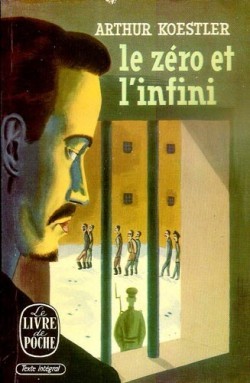 Ce n’est pas seulement par l’effet tonifiant du blanc-seing de Piron, dans le microcosme néo-droitiste bruxellois en gestation à l’époque, que Koestler revenait au premier plan de mes préoccupations. En première année de philologie germanique aux Facultés Universitaires Saint-Louis, il me fallait lire, dès le second trimestre, des romans anglais. Mon programme: Orwell, Huxley, Koestler et D. H. Lawrence. L’un des romans sélectionnés devait être présenté oralement: le sort a voulu que, pour moi, ce fut Darkness at Noon (Le zéro et l’infini), récit d’un procès politique dans le style des grandes purges staliniennes des années 30. Le roman, mettant en scène le “dissident” Roubachov face à ses inquisiteurs, est bien davantage qu’une simple dénonciation du stalinisme par un adepte de la dissidence boukharinienne, zinovievienne ou trotskiste. Toute personne qui entre en politique, entre obligatoirement au service d’un appareil, perclus de rigidités, même si ce n’est guère apparent au départ, pour le croyant, pour le militant, comme l’avoue d’ailleurs Koestler après avoir viré sa cuti. A parti d’un certain moment, le croyant se trouvera en porte-à-faux, tout à la fois face à la politique officielle du parti, face aux promesses faites aux militants de base mais non tenables, face à une réalité, sur laquelle le parti a projeté ses dogmes ou ses idées, mais qui n’en a cure. Le croyant connaîtra alors un profond malaise, il reculera et hésitera, devant les nouveaux ordres donnés, ou voudra mettre la charrue avant les boeufs en basculant dans le zèle révolutionnaire. Il sera soit exclu ou marginalisé, comme aujourd’hui dans les partis dits “démocratiques” ainsi que chez leurs challengeurs (car c’est kif-kif-bourricot!). Dans un parti révolutionnaire comme le parti bolchevique en Russie, la lenteur d’adaptation aux nouvelles directives de la centrale, la fidélité à de vieilles amitiés ou de vieilles traditions de l’époque héroïque de la révolution d’Octobre 1917 ou de la clandestinité pré-révolutionnaire, condamne le “lent” ou le nostalgique à être broyé par une machine en marche qui ne peut ni ralentir ni cesser d’aller de l’avant. La logique des procès communistes voulait que les accusés reconnaissent que leur lenteur et leur nostalgie entravaient le déploiement de la révolution dans le monde, mettait le socialisme construit dans un seul pays (l’URSS) en danger donc, ipso facto, que ces “vertus” de vieux révolutionnaires étaient forcément des “crimes” risquant de ruiner les acquis réellement existants des oeuvres du parti. En conséquence, ces “vertus” relevaient de la complicité avec les ennemis extérieurs de l’Union Soviétique (ou, lors des procès de Prague, de la nouvelle Tchécoslovaquie rouge). Lenteur et nostalgie étaient donc objectivement parlant des vices contre-révolutionnaires. Koestler a vécu de près, au sein des cellules du Komintern, ce type de situation. Pour lui, le pire a été l’entrée en dissidence, à son corps défendant, de Willi Münzenberg, communiste allemand chargé par le Komintern d’organiser depuis son exil parisien une résistance planétaire contre le fascisme et le nazisme. Pour y parvenir, Münzenberg avait reçu d’abord l’ordre de créer des “fronts populaires”, avec les socialistes et les sociaux-démocrates, comme en Espagne et en France. Mais la centrale moscovite change d’avis et pose trotskistes et socialistes comme des ennemis sournois de la révolution: Münzenberg entre en disgrâce, parce qu’il ne veut pas briser l’appareil qu’il a patiemment construit à Paris et tout recommencer à zéro; il refuse d’aller s’expliquer à Moscou, de crainte de subir le sort de son compatriote communiste allemand Neumann, épuré en Union Soviétique (sa veuve, Margarete Buber-Neumann, rejoindra Koestler dans son combat anti-communiste d’après guerre). Münzenberg a refusé d’obéir, de s’aligner sans pour autant passer au service de ses ennemis nationaux-socialistes. Dans le roman Darkness at Noon/Le zéro et l’infini, Roubachov n’est ni un désobéissant ni un traître: il proteste de sa fidélité à l’idéal révolutionnaire. Mais suite au travail de sape des inquisiteurs, il finit par admettre que ses positions, qu’il croit être de fidélité, sont une entorse à la bonne marche de la révolution mondiale en cours, qu’il est un complice objectif des ennemis de l’intérieur et de l’extérieur et que son élimination sauvera peut-être de l’échec final la révolution, à laquelle il a consacré toute sa vie et tous ses efforts. (Sur l’itinéraire de Willi Münzenberg, on se rapportera utilement aux pages que lui consacre François Furet dans Le passé d’une illusion – Essai sur l’idée communiste au XX° siècle, Laffont/Calmann-Lévy, 1995).
Ce n’est pas seulement par l’effet tonifiant du blanc-seing de Piron, dans le microcosme néo-droitiste bruxellois en gestation à l’époque, que Koestler revenait au premier plan de mes préoccupations. En première année de philologie germanique aux Facultés Universitaires Saint-Louis, il me fallait lire, dès le second trimestre, des romans anglais. Mon programme: Orwell, Huxley, Koestler et D. H. Lawrence. L’un des romans sélectionnés devait être présenté oralement: le sort a voulu que, pour moi, ce fut Darkness at Noon (Le zéro et l’infini), récit d’un procès politique dans le style des grandes purges staliniennes des années 30. Le roman, mettant en scène le “dissident” Roubachov face à ses inquisiteurs, est bien davantage qu’une simple dénonciation du stalinisme par un adepte de la dissidence boukharinienne, zinovievienne ou trotskiste. Toute personne qui entre en politique, entre obligatoirement au service d’un appareil, perclus de rigidités, même si ce n’est guère apparent au départ, pour le croyant, pour le militant, comme l’avoue d’ailleurs Koestler après avoir viré sa cuti. A parti d’un certain moment, le croyant se trouvera en porte-à-faux, tout à la fois face à la politique officielle du parti, face aux promesses faites aux militants de base mais non tenables, face à une réalité, sur laquelle le parti a projeté ses dogmes ou ses idées, mais qui n’en a cure. Le croyant connaîtra alors un profond malaise, il reculera et hésitera, devant les nouveaux ordres donnés, ou voudra mettre la charrue avant les boeufs en basculant dans le zèle révolutionnaire. Il sera soit exclu ou marginalisé, comme aujourd’hui dans les partis dits “démocratiques” ainsi que chez leurs challengeurs (car c’est kif-kif-bourricot!). Dans un parti révolutionnaire comme le parti bolchevique en Russie, la lenteur d’adaptation aux nouvelles directives de la centrale, la fidélité à de vieilles amitiés ou de vieilles traditions de l’époque héroïque de la révolution d’Octobre 1917 ou de la clandestinité pré-révolutionnaire, condamne le “lent” ou le nostalgique à être broyé par une machine en marche qui ne peut ni ralentir ni cesser d’aller de l’avant. La logique des procès communistes voulait que les accusés reconnaissent que leur lenteur et leur nostalgie entravaient le déploiement de la révolution dans le monde, mettait le socialisme construit dans un seul pays (l’URSS) en danger donc, ipso facto, que ces “vertus” de vieux révolutionnaires étaient forcément des “crimes” risquant de ruiner les acquis réellement existants des oeuvres du parti. En conséquence, ces “vertus” relevaient de la complicité avec les ennemis extérieurs de l’Union Soviétique (ou, lors des procès de Prague, de la nouvelle Tchécoslovaquie rouge). Lenteur et nostalgie étaient donc objectivement parlant des vices contre-révolutionnaires. Koestler a vécu de près, au sein des cellules du Komintern, ce type de situation. Pour lui, le pire a été l’entrée en dissidence, à son corps défendant, de Willi Münzenberg, communiste allemand chargé par le Komintern d’organiser depuis son exil parisien une résistance planétaire contre le fascisme et le nazisme. Pour y parvenir, Münzenberg avait reçu d’abord l’ordre de créer des “fronts populaires”, avec les socialistes et les sociaux-démocrates, comme en Espagne et en France. Mais la centrale moscovite change d’avis et pose trotskistes et socialistes comme des ennemis sournois de la révolution: Münzenberg entre en disgrâce, parce qu’il ne veut pas briser l’appareil qu’il a patiemment construit à Paris et tout recommencer à zéro; il refuse d’aller s’expliquer à Moscou, de crainte de subir le sort de son compatriote communiste allemand Neumann, épuré en Union Soviétique (sa veuve, Margarete Buber-Neumann, rejoindra Koestler dans son combat anti-communiste d’après guerre). Münzenberg a refusé d’obéir, de s’aligner sans pour autant passer au service de ses ennemis nationaux-socialistes. Dans le roman Darkness at Noon/Le zéro et l’infini, Roubachov n’est ni un désobéissant ni un traître: il proteste de sa fidélité à l’idéal révolutionnaire. Mais suite au travail de sape des inquisiteurs, il finit par admettre que ses positions, qu’il croit être de fidélité, sont une entorse à la bonne marche de la révolution mondiale en cours, qu’il est un complice objectif des ennemis de l’intérieur et de l’extérieur et que son élimination sauvera peut-être de l’échec final la révolution, à laquelle il a consacré toute sa vie et tous ses efforts. (Sur l’itinéraire de Willi Münzenberg, on se rapportera utilement aux pages que lui consacre François Furet dans Le passé d’une illusion – Essai sur l’idée communiste au XX° siècle, Laffont/Calmann-Lévy, 1995).
L’anthropologie communiste: une image incomplète de l’homme
Koestler s’insurge contre ce mécanisme qui livre la liberté de l’homme, celle de s’engager politiquement et celle de se rebeller contre des conditions d’existence inacceptables, à l’arbitraire des opportunités passagères (ou qu’il croit passagères). L’homme réel, complet et non réduit, n’est pas le pantin mutilé et muet que devient le révolutionnaire établi, qui exécute benoîtement les directives changeantes de la centrale ou qui confesse humblement ses fautes s’il est, d’une façon ou d’une autre, de manière parfaitement anodine ou bien consciente, en porte-à-faux face à de nouveaux ukases, qui, eux, sont en contradiction avec le plan premier ou le style initial de la révolution en place et en marche. Koestler finira par sortir de toutes les cangues idéologiques ou politiques. Il mettra les errements du communisme sur le compte de son anthropologie implicite, reposant sur une image incomplète de l’homme, réduit à un pion économique. Dans la première phase de son histoire, la “nouvelle droite” en gestation avait voulu, avec Louis Pauwels, porte-voix de l’anthropologie alternative des groupes Planète, restaurer une vision non réductionniste de l’homme.
Ma présentation avait déplu à ce professeur de littérature anglaise des Facultés Saint-Louis, un certain Engelborghs aujourd’hui décédé, tué au volant d’un cabriolet sans doute trop fougueux et mal protégé en ses superstructures. Je n’ai jamais su avec précision ce qui lui déplaisait chez Koestler (et chez Orwell), sauf peut-être qu’il n’aimait pas ce que l’on a nommé par la suite les “political novels” ou la veine dite “dystopique”: toutefois, il ne me semblait pas être l’un de ces hallucinés qui tiennent à leurs visions utopiques comme à toutes leurs autres illusions. Pourtant, je persiste et je signe, jusqu’à mon grand âge: Koestler doit être lu et relu, surtout son Testament espagnol et son Zéro et l’Infini. Après les remarques dénigrantes et infondées d’Engelborghs, je vais abandonner un peu Koestler, sauf peut-être pour son livre sur la peine de mort, écrit avec Albert Camus dans les années 50 en réaction à la pendaison, en Angleterre, de deux condamnés ne disposant apparemment pas de toutes leurs facultés mentales, et pour des crimes auxquels on aurait pu facilement trouver des circonstances atténuantes. Force est toutefois de constater que, dans ce livre-culte des opposants à la peine de mort, on lira que les régimes plus ou moins autocratiques, ceux de l’Obrigkeitsstaat centre-européen, ont bien moins eu recours à la potence ou à la guillotine que les “vertuistes démocraties” occidentales, la France et l’Angleterre. Le paternalisme conservateur induit moins de citoyens au crime, ou se montre plus clément en cas de faute, que le libéralisme, où chacun doit se débrouiller pour ne pas tomber dans la misère noire et se voit condamné sans pitié en cas de faux pas et d’arrestation. Le livre de Koestler et Camus sur la peine de mort réfute, en filigrane, la prétention à la vertu qu’affichent si haut et si fort les “démocraties” occidentales. Ce sont elles, comme dirait Foucault, qui surveillent et punissent le plus.
Dans les rangs du cercle de la première “nouvelle droite” bruxelloise, la critique du réductionnisme et la volonté de rétablir une anthropologie plus réaliste et dégagée des lubies idéologiques du 19ème siècle quittera l’orbite de Koestler et de son Cheval dans la locomotive, pour se plonger dans l’oeuvre du Prix Nobel Konrad Lorenz, notamment son ouvrage de vulgarisation, intitulé Les huit péchés capitaux de notre civilisation (Die acht Todsünde der zivilisierten Menschheit), où le biologiste annonce, pour l’humanité moderne, un risque réel de “mort tiède”, si les régimes politiques en place ne tiennent pas compte des véritables ressorts naturels de l’être humain. Nouvelle école ira d’ailleurs interviewer longuement Lorenz dans son magnifique repère autrichien. Plus tard, en dehors des cercles “néo-droitistes” en voie de constitution, Alexandre Soljénitsyne éclipsera Koestler, dès la seconde moitié des années 70. Avec le dissident russe, l’anti-communisme cesse d’être un tabou dans les débats politiques. Je retrouverai Koestler, en même temps qu’Orwell et Soljénitsyne, à la fin de la première décennie du 21ème siècle pour servir, à titre de conférencier, les bonnes oeuvres de mon ami genevois, Maitre Pascal Junod, féru de littérature et grand lecteur devant l’éternel.
DI: Justement, je reviens à ma question, quel regard doit-on jeter sur la trajectoire d’Arthur Koestler aujourd’hui?
RS: Arthur Koestler est effectivement une “trajectoire”, une flèche qui traverse les périodes les plus effervescentes du 20ème siècle: il le dit lui-même car le titre du premier volume de son autobiographie s’intitule, en anglais, Arrow in the Blue (en français: La corde raide). Enfant interessé aux sciences physiques, le très jeune Koestler s’imaginait suivre la trajectoire d’une flèche traversant l’azur pour le mener vers un monde idéal. Mais dans la trajectoire qu’il a effectivement suivie, si on l’examine avec toute l’attention voulue, rien n’est simple. Koestler nait à Budapest sous la double monarchie austro-hongroise, dans une ambiance impériale et bon enfant, dans un monde gai, tourbillonnant allègrement au son des valses de Strauss. Il suivra, à 9 ans, avec son père, le défilé des troupes magyars partant vers le front de Serbie en 1914, acclamant les soldats du contingent, sûrs de revenir vite après une guerre courte, fraîche et joyeuse. Mais ce monde va s’effondrer en 1918: le très jeune Koestler penche du côté de la dictature rouge de Bela Kun, parce que le gouvernement libéral lui a donné le pouvoir pour qu’il éveille le sentiment national des prolétaires bolchévisants et appelle ainsi les Hongrois du menu peuple à chasser les troupes roumaines envoyées par la France pour fragmenter définitivement la masse territoriale de l’Empire des Habsbourgs. Mais ses parents décident de déménager à Vienne, de quitter la Hongrie détachée de l’Empire. A Vienne, il adhère aux Burschenschaften (les Corporations étudiantes) sionistes car les autres n’acceptent pas les étudiants d’origine juive. Il s’y frotte à un sionisme de droite, inspiré par l’idéologue Max Nordau, théoricien d’une vision très nietzschéenne de la décadence. Koestler va vouloir jouer le jeu sioniste jusqu’au bout: il abandonne tout, brûle son livret d’étudiant et part en Palestine. Il y découvrira l’un des premiers kibboutzim, un véritable nid de misère au fin fond d’une vallée aride. Pour les colons juifs qui s’y accrochaient, c’était une sorte de nouveau phalanstérisme de gauche, regroupant des croyants d’une mouture nouvelle, attendant une parousie laïque et agrarienne sur une terre censée avoir appartenu à leurs ancêtres judéens.
Ensuite, nous avons le Koestler grand journaliste de la presse berlinoise qui appuie la République de Weimar et l’idéologie d’un Thomas Mann. Mais cette presse, aux mains de la famille Ullstein, famille israélite convertie au protestantisme prussien, basculera vers la droite et finira par soutenir les nationaux-socialistes. Entretemps, Koestler vire au communisme —parce qu’il n’y a rien d’autre à faire— et devient un militant exemplaire du Komintern, à Berlin d’abord puis à Paris en exil. Il fait le voyage en URSS et devient un bon petit soldat du Komintern, même si ce qu’il a vu entre l’Ukraine affamée par l’Holodomor et la misère pouilleuse du lointain Turkménistan soviétique induit une certaine dose de scepticisme dans son coeur.
Sionisme et communisme: de terribles simplifications
Ce scepticisme ne cessera de croître: finalement, pour Koestler, la faiblesse humaine, le besoin de certitudes claires, l’horreur de la complexité font accepter les langages totalitaires, la tutelle d’un parti tout-puissant, remplaçant la transcendance divine tuée ou évacuée depuis la “mort de Dieu”. Les colons sionistes reniaient les facultés juives —du moins de la judaïté urbanisée, germanisée ou slavisée, d’idéologie libérale ou sociale-démocrate— d’adaptation plastique et constante à des mondes différents, ressuscitaient l’hébreu sous une forme moderne et simplifiée, nouvelle langue sans littérature et donc sans ancrage temporel, et abandonnaient l’allemand et le russe, autrefois véhicules d’émancipation du ghetto. Le sionisme menait à une terrible simplification, à l’expurgation de bonnes qualités humaines. Le communisme également.
Contrairement à l’époque héroïque de ma découverte de Koestler, où nous ne bénéficions pas de bonnes biographies, nous disposons aujourd’hui d’excellents ouvrages de référence: celui du professeur américain Michael Scammell, également auteur d’un monumental ouvrage sur Soljénitsyne, et celui de l’avocat français Michel Laval (Michael Scammell, Koestler – The Indispensable Intellectual, Faber & Faber, 2009; Michel Laval, L’homme sans concessions – Arthur Koestler et son siècle, Calmann-Lévy, 2005). Tous deux resituent bien Koestler dans le contexte politique de son époque mais, où ils me laissent sur ma faim, c’est quand ils n’abordent pas les raisons intellectuelles et quand ils ne dressent pas la liste des lectures ou des influences qui poussent le quadragénaire Koestler à changer de cap et à abandonner complètement toutes ses spéculations politiques dans les années 50, immédiatement après la parenthèse maccarthiste aux Etats-Unis, pays où il a longuement séjourné, sans vraiment s’y sentir aussi à l’aise que dans son futur cottage gallois ou dans son chalet autrichien. Certes, Koestler lui-même n’a jamais donné une oeuvre ou un essai bien balancé sur son itinéraire scientifique, post-politique. Les deux volumes de son autobiographie, Arrow in the Blue (La corde raide) et Invisible Writing (Hiéroglyphes) s’arrêtent justement vers le milieu des années 50. Ces deux volumes constituent un bilan et un adieu. J’en conseille vivement la lecture pour comprendre certaines facettes du 20ème siècle, notamment relative à la guerre secrète menée par le Komintern en Europe occidentale.
Agent soviétique puis agent britannique?
Koestler se lit avec intérêt justement pour le recul qu’il prend vis-à-vis des idéologies auxquelles il a adhéré avec un enthousiasme naïf, comme des millions d’autres Européens. Mais on ne saurait évidemment adhérer à ces idéologies, sioniste ou communiste, ni partager les sentiments, parfois malsains, qui l’ont conduit à s’y conformer et à s’y complaire. Koestler a été un agent du Komintern mais, à part le long épisode dans le sillage de Münzenberg, d’autres facettes sont traîtées trop brièvement: je pense notamment à son travail au sein de l’agence de presse géopolitique, “Pressgeo”, dirigée à Zürich par le Hongrois Rados et pendant soviétique/communiste des travaux de l’école allemande d’Haushofer. Koestler lui-même et ses biographes sont très discrets sur cette initiative, dont tous louent la qualité intrinsèque, en dépit de son indéniable marquage communiste. Koestler a donc été un agent soviétique. Il sera aussi, on s’en doute, un agent britannique, surtout en Palestine, où il se rendra deux ou trois fois pour faire accepter les plans britanniques de partition du pays aux sionistes de gauche et de droite (avec qui il était lié via l’idéologue et activiste de droite Vladimir Jabotinski, père spirituel des futures droites israéliennes). Ses souvenirs sont donc intéressants pour comprendre les sentiments et les réflexes à l’oeuvre dans la question judéo-israélienne et dans les gauches d’Europe centrale. On ne peut affirmer que Koestler soit devenu un agent américain, pour la bonne raison qu’à New York il fut nettement moins “employé”’ que d’autres au début de la Guerre Froide, qu’on le laissait moisir dans sa maison américaine quasi vide et que sa carrière aux Etats-Unis n’a guère donné de fruits. Le maccarthisme se méfiait de cet ancien agent du Komintern. Et Koestler, lui, estimait que le maccarthisme était dénué de nuances et agissait exactement avec la même hystérie que les propagandistes soviétiques, quand ils tentaient de fabriquer des collusions ou d’imaginer des complots.
Koestler et la France
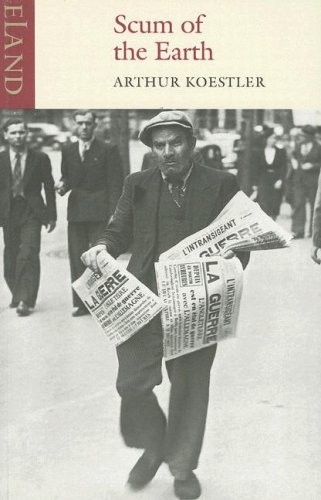 Reste à évoquer le rapport entre Koestler et la France. Ce pays est, dans l’entre-deux-guerres, le refuge idéal des antifascistes et antinazis de toutes obédiences. Koestler y pérègrine entre Paris et la Côte d’Azur. La France est la patrie de la révolution et Koestler se perçoit comme un révolutionnaire, qui poursuit l’idéal 150 ans après la prise de la Bastille, devant des ennemis tenaces, apparemment plus coriaces que les armées en dentelles de la Prusse et de l’Autriche à Valmy ou que les émigrés de Coblence. Cet engouement pour la France s’effondre en octobre 1939: considéré comme sujet hongrois et comme journaliste allemand, Koestler est arrêté et interné dans un camp de concentration en lisière des Pyrénées. Il y restera quatre mois. Cette mésaventure, ainsi que sa seconde arrestation en mai 1940, son évasion et son périple dans la France en débâcle, généreront un deuxième chef-d’oeuvre de littérature carcérale et autobiographique, Scum of the Earth (La lie de la Terre). Cet ouvrage est une dénonciation de l’inhumanité du système concentrationnaire de la Troisième République, de son absence totale d’hygiène et un témoignage poignant sur la mort et la déréliction de quelques antifascistes allemands, italiens et espagnols dans ces camps sordides. Avant 1945, la littérature carcérale/concentrationnaire dénonce, non pas le Troisième Reich, mais la Troisième République. Il y a Koestler, qui édite son livre en Angleterre et donne à l’allié français vaincu une très mauvaise presse, mais il y a, en Belgique, les souvenirs des internés du Vernet, arrêtés par la Sûreté belge en mai 1940 et livrés aux soudards français qui les accompagneront en les battant et en les humiliant jusqu’à la frontière espagnole. Eux aussi iront crever de faim, rongés par une abondante vermine, en bordure des Pyrénées. Ce scandale a été largement exploité en Belgique pendant les premiers mois de la deuxième occupation allemande, avec les témoignages de Léon Degrelle (Ma guerre en prison), du rexiste Serge Doring (L’école de la douleur – Souvenirs d’un déporté politique), des militants flamands René Lagrou (Wij Verdachten) et Ward Hermans. La description des lieux par Doring correspond bien à celle que nous livre Koestler. L’un de leurs compagnons d’infortune des trains fantômes partis de Bruxelles, le communiste saint-gillois Lucien Monami n’aura pas l’occasion de rédiger le récit de ses malheurs: il sera assassiné par des soldats français ivres à Abbeville, aux côtés des solidaristes Van Severen et Rijckoort. La lie de la terre rend Koestler impopulaire en France dans l’immédiat après-guerre. En effet, cet ouvrage prouve que le dérapage concentrationnaire n’est pas une exclusivité du Troisième Reich ou de l’URSS stalinienne, que les antifascistes et les rescapés des Brigades Internationales ou des milices anarchistes ibériques antifranquistes ont d’abord été victimes du système concentrationnaire français avant de l’être du système national-socialiste ou, éventuellement, stalinien, que la revendication d’humanisme de la “République” est donc un leurre, que la “saleté” et le manque total d’hygiène reprochés aux services policiers et pénitentiaires français sont attestés par un témoignage bien charpenté et largement lu chez les alliés d’Outre-Manche à l’époque. Les choses s’envenimeront dans les années chaudes et quasi insurrectionnelles de 1947-48, où Koestler évoque la possibilité d’une prise de pouvoir communiste en France et appelle à soutenir De Gaulle. Dans ses mémoires, il décrit Jean-Paul Sartre et Simone de Beauvoir, avec leur entourage, en des propos peu amènes, se gaussant grassement de leurs dogmatismes, de leurs manies, de leur laideur et de leur ivrognerie. La rupture a lieu définitivement en 1949, quand Koestler participe à un recueil collectif, Le Dieu des Ténèbres, publié dans une collection dirigée par Raymond Aron. La gauche française, communistes en tête, mène campagne contre le “rénégat” Koestler et surtout contre la publication en traduction française de Darkness at Noon (Le Zéro et l’Infini). Pire: l’impression du recueil d’articles de Koestler, intitulé Le Yogi et le commissaire, est suspendue sur ordre du gouvernement français pour “inopportunisme politique”! Une vengeance pour La lie de la Terre?
Reste à évoquer le rapport entre Koestler et la France. Ce pays est, dans l’entre-deux-guerres, le refuge idéal des antifascistes et antinazis de toutes obédiences. Koestler y pérègrine entre Paris et la Côte d’Azur. La France est la patrie de la révolution et Koestler se perçoit comme un révolutionnaire, qui poursuit l’idéal 150 ans après la prise de la Bastille, devant des ennemis tenaces, apparemment plus coriaces que les armées en dentelles de la Prusse et de l’Autriche à Valmy ou que les émigrés de Coblence. Cet engouement pour la France s’effondre en octobre 1939: considéré comme sujet hongrois et comme journaliste allemand, Koestler est arrêté et interné dans un camp de concentration en lisière des Pyrénées. Il y restera quatre mois. Cette mésaventure, ainsi que sa seconde arrestation en mai 1940, son évasion et son périple dans la France en débâcle, généreront un deuxième chef-d’oeuvre de littérature carcérale et autobiographique, Scum of the Earth (La lie de la Terre). Cet ouvrage est une dénonciation de l’inhumanité du système concentrationnaire de la Troisième République, de son absence totale d’hygiène et un témoignage poignant sur la mort et la déréliction de quelques antifascistes allemands, italiens et espagnols dans ces camps sordides. Avant 1945, la littérature carcérale/concentrationnaire dénonce, non pas le Troisième Reich, mais la Troisième République. Il y a Koestler, qui édite son livre en Angleterre et donne à l’allié français vaincu une très mauvaise presse, mais il y a, en Belgique, les souvenirs des internés du Vernet, arrêtés par la Sûreté belge en mai 1940 et livrés aux soudards français qui les accompagneront en les battant et en les humiliant jusqu’à la frontière espagnole. Eux aussi iront crever de faim, rongés par une abondante vermine, en bordure des Pyrénées. Ce scandale a été largement exploité en Belgique pendant les premiers mois de la deuxième occupation allemande, avec les témoignages de Léon Degrelle (Ma guerre en prison), du rexiste Serge Doring (L’école de la douleur – Souvenirs d’un déporté politique), des militants flamands René Lagrou (Wij Verdachten) et Ward Hermans. La description des lieux par Doring correspond bien à celle que nous livre Koestler. L’un de leurs compagnons d’infortune des trains fantômes partis de Bruxelles, le communiste saint-gillois Lucien Monami n’aura pas l’occasion de rédiger le récit de ses malheurs: il sera assassiné par des soldats français ivres à Abbeville, aux côtés des solidaristes Van Severen et Rijckoort. La lie de la terre rend Koestler impopulaire en France dans l’immédiat après-guerre. En effet, cet ouvrage prouve que le dérapage concentrationnaire n’est pas une exclusivité du Troisième Reich ou de l’URSS stalinienne, que les antifascistes et les rescapés des Brigades Internationales ou des milices anarchistes ibériques antifranquistes ont d’abord été victimes du système concentrationnaire français avant de l’être du système national-socialiste ou, éventuellement, stalinien, que la revendication d’humanisme de la “République” est donc un leurre, que la “saleté” et le manque total d’hygiène reprochés aux services policiers et pénitentiaires français sont attestés par un témoignage bien charpenté et largement lu chez les alliés d’Outre-Manche à l’époque. Les choses s’envenimeront dans les années chaudes et quasi insurrectionnelles de 1947-48, où Koestler évoque la possibilité d’une prise de pouvoir communiste en France et appelle à soutenir De Gaulle. Dans ses mémoires, il décrit Jean-Paul Sartre et Simone de Beauvoir, avec leur entourage, en des propos peu amènes, se gaussant grassement de leurs dogmatismes, de leurs manies, de leur laideur et de leur ivrognerie. La rupture a lieu définitivement en 1949, quand Koestler participe à un recueil collectif, Le Dieu des Ténèbres, publié dans une collection dirigée par Raymond Aron. La gauche française, communistes en tête, mène campagne contre le “rénégat” Koestler et surtout contre la publication en traduction française de Darkness at Noon (Le Zéro et l’Infini). Pire: l’impression du recueil d’articles de Koestler, intitulé Le Yogi et le commissaire, est suspendue sur ordre du gouvernement français pour “inopportunisme politique”! Une vengeance pour La lie de la Terre?
En Belgique en revanche, où l’emprise communiste sur les esprits est nettement moindre (malgré la participation communiste à un gouvernement d’après-guerre, la “communisation” d’une frange de la démocatie chrétienne et les habituelles influences délétères de Paris), Koestler et Orwell, explique le chroniqueur Pierre Stéphany, sont les auteurs anglophones les plus lus (en 1946, le livre le plus vendu en Belgique est Darkness at Noon). Ils confortent les options anticommunistes d’avant-guerre du public belge et indiquent, une fois de plus, que les esprits réagissent toujours différemment à Bruxelles et à Paris. En effet, la lecture des deux volumes autobiographiques de Koestler permettent de reconstituer le contexte d’avant-guerre: Münzenberg (et son employé Koestler) avaient été en faveur de l’Axe Paris-Prague-Moscou, évoqué en 1935; cette option de la diplomatie française contraint le Roi à dénoncer les accords militaires franco-belges et à reprendre le statut de neutralité, tandis que, dans l’opinion publique, bon nombre de gens se disent: “Plutôt Berlin que Moscou!” (fin des années 70, les émissions du journaliste de la télévision flamande, Maurits De Wilde, expliquaient parfaitement ce glissement). Attitude qui reste encore et toujours incomprise en France aujourd’hui, notamment quand on lit les ouvrages d’une professeur toulousaine, Annie Lacroix-Riz (in: Le Vatican, l’Europe et le Reich de la Première Guerre mondiale à la Guerre Froide, Armand Colin, Paris, 1996 et réédité depuis). L’idéologie de cette dame, fort acariâtre dans ses propos, semble se résumer à un mixte indigeste de républicanisme laïcard complètement abscons, de sympathies communisto-résistantialistes et de germanophobie maurrasienne. Bon appétit pour ingurgiter une telle soupe! Les chapitres consacrés à la Belgique sont d’une rare confusion et ne mentionnent même pas les travaux du Prof. Jean Vanwelkenhuizen qui a démontré que l’éventualité d’un Axe Paris-Prague-Moscou a certes contribué à réinstaurer le statut de neutralité de la Belgique mais que d’autres raisons avaient poussé le Roi et son entourage à changer leur fusil d’épaule: les militaires belges estimaient que la tactique purement défensive du système Maginot, foncièrement irréaliste à l’heure du binôme char/avion et ne tenant aucun compte des visions exprimées par le stratégiste britannique Liddell-Hart (que de Gaulle avait manifestement lu); le ministère de l’intérieur jugeait problématique l’attitude de la presse francophile qui ne tenait aucun compte des intérêts spécifiques du pays; et, enfin, last but not least, la volonté royale de sauver la civilisation européenne des idéologies et des pratiques délétères véhiculées certes par les idéologies totalitaires mais aussi par le libéralisme manchestérien anglais et par le républicanisme et “révolutionnisme institutionalisé” de la France. Aucune de ces recettes ne semblait bonne pour restaurer une Europe conviviale, respectueuse des plus belles réalisations de son passé.
Dans La lie de la terre, les Belges de l’immédiat après-guerre ont dû lire avec jubilation un portrait de Paul Reynaud, décrit comme un “tatar en miniature”; “il semblait, poursuit Koestler (p. 144), que quelque part à l’intérieur de lui-même se dissimulait une dynamo de poche qui le faisait sautiller (jerk) et vibrer énergiquement”; bref, un sinistre bouffon, un gnome grimaçant, animé par des “gestes d’automate”. Braillard vulgaire et glapissant, Paul Reynaud, après ses tirades crapuleuses contre Léopold III, a été le personnage le plus honni de Belgique en 1940: son discours, fustigeant le Roi, a eu des retombées fâcheuses sur un grand nombre de réfugiés civils innocents, maltraités en tous les points de l’Hexagone par une plèbe gauloise rendue indiciblement méchante par les fulminations de Reynaud. Le ressentiment contre la France a été immense dans les premières années de guerre (et fut le motif secret de beaucoup de nouveaux germanophiles) et est resté durablement ancré chez ceux qui avaient vécu l’exode de 1940. Après les hostilités et la capitulation de l’Allemagne, la situation insurrectionnelle en France en 1947-48 inquiète une Belgique officielle, secouée par la répression des collaborations et par la question royale. Une France rouge verra-t-elle le jour et envahira-t-elle le territoire comme lors de la dernière invasion avortée de Risquons-Tout en 1848, où les grenadiers de Léopold I ont su tenir en échec les bandes révolutionnaires excitées par Lamartine? Idéologiquement, les deux pays vont diverger: en France, un pôle politique communiste se durcit, dès le lendemain de la seconde guerre mondiale, et va se perpétuer quasiment jusqu’à la chute de l’Union Soviétique, tandis qu’en Belgique, le mouvement va s’étioler pour vivoter jusqu’en 1985, année où il n’aura plus aucune représentation parlementaire. Julien Lahaut, figure de proue du parti communiste belge, qui avait été chercher tous les prisonniers politiques croupissant dans les camps de concentration français des Pyrénées (communistes, rexistes, anarchistes et nationalistes flamands sans aucune distinction), sera assassiné par un mystérieux commando, après avoir été accusé (à tort ou à raison?) d’avoir crié “Vive la république!” au moment où le jeune Roi Baudouin prêtait son serment constitutionnel en 1951. Le communisme n’a jamais fait recette en Belgique: à croire que la leçon de Koestler avait été retenue.
De Koestler au post-sionisme
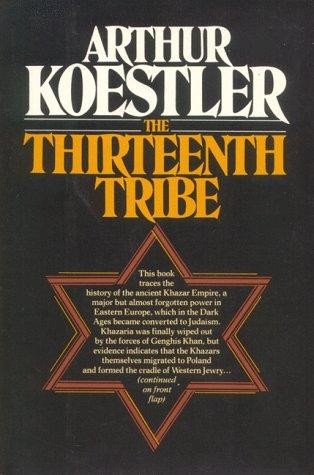 Aujourd’hui, il faut aussi relire Koestler quand on aborde la question judéo-israélienne. Les séjours de Koestler en Palestine, à l’époque du sionisme balbutiant, ont conduit, en gros, à une déception. Ce sionisme, idéologiquement séduisant dans les Burschenschaften juives de Vienne, où le niveau intellectuel était très élevé, s’avérait décevant et caricatural dans les kibboutzim des campagnes galiléennes ou judéennes et dans les nouvelles villes émergentes du Protectorat britannique de Palestine en voie de judaïsation. Même si Koestler fut le premier inventeur de mots croisés en hébreu pour une feuille juive locale, l’option en faveur de cette langue reconstituée lui déplaisait profondément: il estimait qu’ainsi, le futur citoyen palestinien de confession ou d’origine juive se détachait des vieilles cultures européennes, essentiellement celles de langues germaniques ou slaves, qui disposaient d’une riche littérature et d’une grande profondeur temporelle, tout en n’adoptant pas davantage l’arabe. Ce futur citoyen judéo-palestinien néo-hébraïsant adoptait une sorte d’esperanto largement incompris dans le reste du monde: selon le raisonnement de Koestler, le juif, en s’immergeant jusqu’à l’absurde dans l’idéologie sioniste, devenue caricaturale, cessait d’être un être passe-partout, un cosmopolite bon teint, à l’aise dans tous les milieux cultivés de la planète. L’hébraïsation transformait l’immigré juif, cherchant à échapper aux ghettos, aux pogroms ou aux persécutions, en un plouc baraguinant et marginalisé sur une planète dont il n’allait plus comprendre les ressorts. Plus tard, dans les années 70, Koestler rédigera La treizième tribu un ouvrage ruinant le mythe sioniste du “retour”, en affirmant que la masse des juifs russes et roumains n’avaient aucune racine en Palestine mais descendaient d’une tribu turco-tatar, les Khazars, convertie au judaïsme au haut moyen âge. Poser le mythe du “retour” comme fallacieux est l’axiome majeur de la nouvelle tradition “post-sioniste” en Israël aujourd’hui, sévèrement combattue par les droites israéliennes, dont elle ruine le mythe mobilisateur.
Aujourd’hui, il faut aussi relire Koestler quand on aborde la question judéo-israélienne. Les séjours de Koestler en Palestine, à l’époque du sionisme balbutiant, ont conduit, en gros, à une déception. Ce sionisme, idéologiquement séduisant dans les Burschenschaften juives de Vienne, où le niveau intellectuel était très élevé, s’avérait décevant et caricatural dans les kibboutzim des campagnes galiléennes ou judéennes et dans les nouvelles villes émergentes du Protectorat britannique de Palestine en voie de judaïsation. Même si Koestler fut le premier inventeur de mots croisés en hébreu pour une feuille juive locale, l’option en faveur de cette langue reconstituée lui déplaisait profondément: il estimait qu’ainsi, le futur citoyen palestinien de confession ou d’origine juive se détachait des vieilles cultures européennes, essentiellement celles de langues germaniques ou slaves, qui disposaient d’une riche littérature et d’une grande profondeur temporelle, tout en n’adoptant pas davantage l’arabe. Ce futur citoyen judéo-palestinien néo-hébraïsant adoptait une sorte d’esperanto largement incompris dans le reste du monde: selon le raisonnement de Koestler, le juif, en s’immergeant jusqu’à l’absurde dans l’idéologie sioniste, devenue caricaturale, cessait d’être un être passe-partout, un cosmopolite bon teint, à l’aise dans tous les milieux cultivés de la planète. L’hébraïsation transformait l’immigré juif, cherchant à échapper aux ghettos, aux pogroms ou aux persécutions, en un plouc baraguinant et marginalisé sur une planète dont il n’allait plus comprendre les ressorts. Plus tard, dans les années 70, Koestler rédigera La treizième tribu un ouvrage ruinant le mythe sioniste du “retour”, en affirmant que la masse des juifs russes et roumains n’avaient aucune racine en Palestine mais descendaient d’une tribu turco-tatar, les Khazars, convertie au judaïsme au haut moyen âge. Poser le mythe du “retour” comme fallacieux est l’axiome majeur de la nouvelle tradition “post-sioniste” en Israël aujourd’hui, sévèrement combattue par les droites israéliennes, dont elle ruine le mythe mobilisateur.
Beaucoup de pain sur la planche pour connaître les tenants et aboutissants des propagandes “américanosphériques”
Reste à analyser un chapitre important dans la biographie de Koestler: son attitude pendant la Guerre Froide. Il sera accusé d’être un “agent des trusts” par les communistes français, il adoptera une attitude incontestablement belliciste à la fin des années 40 au moment où les communistes tchèques, avec l’appui soviétique, commettent le fameux “coup de Prague” en 1948, presque au même moment où s’amorcent le blocus de Berlin, métropole isolée au milieu de la zone d’occupation soviétique en Allemagne. Koestler ne sera cependant pas un jusqu’au-boutiste du bellicisme: il s’alignera assez vite sur la notion de “coexistence”, dégoûté par le schématisme abrupt des démarches maccarthistes. Cependant, sa présence, incontournable, dans la mobilisation d’intellectuels “pour la liberté” révèle un continent de l’histoire des idées qui n’a été que fort peu étudié et mis en cartes jusqu’ici. Ce continent est celui, justement, d’un espace intellectuel sollicité en permanence par certains services occidentaux, surtout américains, pour mobiliser l’opinion et les médias contre les initiatives soviétiques d’abord, autres ensuite. Ces services, dont l’OSS puis la CIA, vont surtout tabler sur une gauche non communiste voire anticommuniste, avec des appuis au sein des partis sociaux démocrates, plutôt que sur une droite légitimiste ou radicale. C’est dans cet espace intellectuel-là, auquel Koestler s’identifie, qu’il faut voir les racines de la “nouvelle philosophie” en France et de la “political correctness” partout dans la sphère occidentale, ainsi que des gauches “ex-extrêmes”, dont les postures anti-impérialistes et les velléités auto-gestionnaires ont été dûment expurgées au fil du temps, pour qu’elles deviennent docilement des porte-voix bellicistes en faveur des buts de guerre des Etats-Unis. Un chercheur allemand a inauguré l’exploration inédite de cet espace: Tim B. Müller (Humboldt-Universität, Berlin) dans son ouvrage Krieger und Gelehrte – Herbert Marcuse und die Denksysteme im Kalten Kriege; ce travail est certes centré sur la personnalité et l’oeuvre du principal gourou philosophique de l’idéologie soixante-huitarde en Allemagne et en France (et aussi, partiellement, des groupes Planète de Louis Pauwels!); il relie ensuite cette oeuvre philosophique d’envergure et la vulgate qui en a découlé lors des événements de 67-68 en Europe aux machinations des services secrets américains. La personnalité de Koestler est maintes fois évoquée dans ce livre copieux de 736 pages. Par ailleurs, le Dr. Stefan Meining, de la radio bavaroise ARD, et, en même temps que lui, l’Américain Ian Johnson, Prix Pulitzer et professeur à la TU de Berlin, ont chacun publié un ouvrage documenté sur la prise de contrôle de la grande mosquée de Munich par Said Ramadan à la fin des années 50.
En s’emparant des leviers de commande de cette importante mosquée d’Europe centrale, Ramadan, affirment nos deux auteurs, éliminait de la course les premiers imams allemands, issus des bataillons turkmènes ou caucasiens de l’ancienne Wehrmacht, fidèles à une certaine amitié euro-islamique, pour la remplacer par un islamisme au service des Etats-Unis, via la personnalité d’agents de l’AMCOMLIB, comme Robert H. Dreher et Robert F. Kelley. Ceux-ci parviendront même à retourner le Grand Mufti de Jérusalem, initialement favorable à une alliance euro-islamique. Les Américains de l’AMCOMLIB, largement financés, éclipseront totalement les Allemands, dirigés par le turcologue Gerhard von Mende, actif depuis l’ère nationale-socialiste et ayant repris du service sous la Bundesrepublik. La mise hors jeu de von Mende, impliquait également le retournement d’Ibrahim Gacaoglu, de l’Ouzbek Rusi Nasar et du Nord-Caucasien Said Shamil. Seuls l’historien ouzbek Baymirza Hayit, le chef daghestanais Ali Kantemir et l’imam ouzbek Nurredin Namangani resteront fidèles aux services de von Mende mais sans pouvoir imposer leur ligne à la mosquée de Munich. L’étude simultanée des services, qui ont orchestré les agitations gauchistes et créé un islamisme pro-américain, permettrait de voir clair aujourd’hui dans les rouages de la nouvelle propagande médiatique, notamment quand elle vante un islam posé comme “modéré” ou les mérites d’une armée rebelle syrienne, encadrée par des talibans (non modérés!) revenus de Libye et financés par l’Emirat du Qatar, pour le plus grand bénéfice d’Obama, désormais surnommé “Bushbama”. Il est temps effectivement que nos contemporains voient clair dans ces jeux médiatiques où apparaissent des hommes de gauche obscurantistes et néo-staliniens (poutinistes!), auxquels on oppose une bonne gauche néo-philosophique à la Bernard-Henri Lévy ou à la Finkelkraut ou même à la Cohn-Bendit; des mauvais islamistes afghans, talibanistes et al-qaïdistes, mais de bons extrémistes musulmans libyens (néo-talibanistes) ou qataris face à de méchants dictateurs laïques, de bons islamistes modérés et de méchants baathistes, une bonne extrême-droite russe qui manifeste contre le méchant Poutine et une très méchante extrême-droite partout ailleurs dans le monde occidental, etc. Les médias, “chiens de garde du système”, comme le dit Serge Halimi, jettent en permanence la confusion dans les esprits. On le voit: nos cercles non-conformistes ont encore beaucoup de pain sur la planche pour éclairer nos contemporains, manipulés et hallucinés par la propagande de l’américanosphère, du soft power made in USA.
Il ne s’agit donc pas de lire Koestler comme un bigot lirait la vie d’un saint (ou d’un mécréant qui arrive au repentir) mais de saisir le passé qu’il évoque en long et en large pour comprendre le présent, tout en sachant que la donne est quelque peu différente.
(propos recueillis à Bruxelles, décembre 2011/janvier 2012).





 del.icio.us
del.icio.us
 Digg
Digg As it turns out, and as many readers probably already know, the Marxist revolutions in the East succeeded in many places thanks to the ample funds supplied to them—consciously and voluntarily—by finance-capitalists in the West.
As it turns out, and as many readers probably already know, the Marxist revolutions in the East succeeded in many places thanks to the ample funds supplied to them—consciously and voluntarily—by finance-capitalists in the West.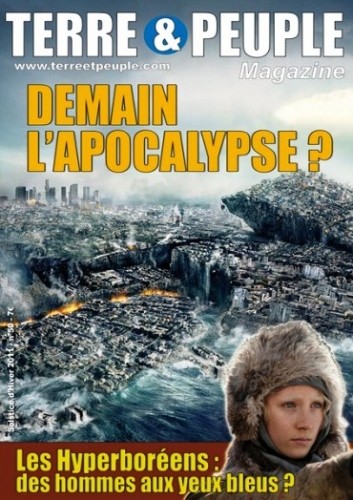 Le numéro 50 de TP Magazine est centré autour d’un dossier bien fourni sur le thème ‘Demain l’apocalypse ?’
Le numéro 50 de TP Magazine est centré autour d’un dossier bien fourni sur le thème ‘Demain l’apocalypse ?’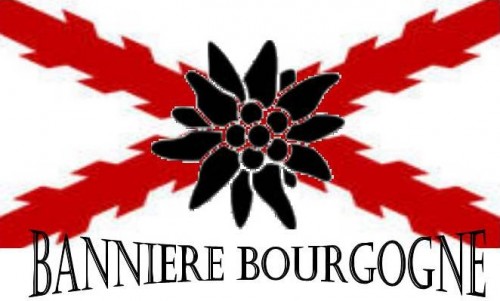
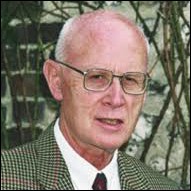 Pour tous ceux qui avaient des raisons de combattre la Collaboration, celle-ci fut détestable. Et de fait, ses aspects haïssables n’ont pas manqué. Pourtant, du côté français, mais aussi du côté allemand, des hommes d’honneur et de foi se sont engagés dans cette voie qu’ils croyaient juste et que l’histoire a condamné. Le plus souvent, ils ont payé leurs illusions au prix fort. Non seulement ils y ont fréquemment perdu la vie, leur liberté et leur existence sociale, mais plus encore la possibilité de faire valoir leurs raisons. Morts ou survivants, il leur fallait endurer une réprobation générale à l’égard d’un engagement réputé ignoble et devenu incompréhensible, L’interprétation imposée par la victoire de leurs adversaires triomphants était à la fois totale et totalitaire (1). En d’autres termes, l’histoire écrite par les vainqueurs impose un manichéisme absolu entre eux-mêmes qui sont associés au Bien, et les vaincus, devenus incarnation du Mal à tout jamais.
Pour tous ceux qui avaient des raisons de combattre la Collaboration, celle-ci fut détestable. Et de fait, ses aspects haïssables n’ont pas manqué. Pourtant, du côté français, mais aussi du côté allemand, des hommes d’honneur et de foi se sont engagés dans cette voie qu’ils croyaient juste et que l’histoire a condamné. Le plus souvent, ils ont payé leurs illusions au prix fort. Non seulement ils y ont fréquemment perdu la vie, leur liberté et leur existence sociale, mais plus encore la possibilité de faire valoir leurs raisons. Morts ou survivants, il leur fallait endurer une réprobation générale à l’égard d’un engagement réputé ignoble et devenu incompréhensible, L’interprétation imposée par la victoire de leurs adversaires triomphants était à la fois totale et totalitaire (1). En d’autres termes, l’histoire écrite par les vainqueurs impose un manichéisme absolu entre eux-mêmes qui sont associés au Bien, et les vaincus, devenus incarnation du Mal à tout jamais.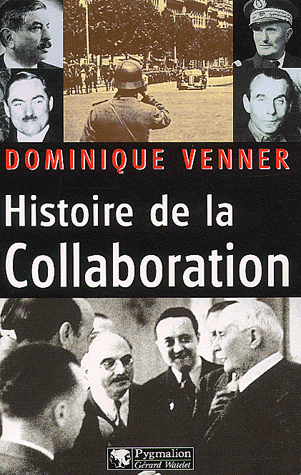 Par ce détour, je ne me suis pas éloigné de ma réflexion initiale. L’exemple de l’opprobre attachée au nom de l’empereur Julien, disparu depuis plus de quinze siècles, attire l’attention sur l’écriture de l’histoire après un conflit ayant mobilisé les passions à l’extrême et dont les vainqueurs ont l’exclusivité de la parole publique. Ce que j’ai dit de l’empereur Julien pourrait l’être aussi, bien que de façon plus limitée, pour le grand personnage que fut le Connétable de Bourbon, à tout jamais qualifié de « traître » par une mémoire française qui se confond avec celle de l’État. En son temps, la révolte du Connétable contre François Ier et sa mère qui l’avaient grugé, fut comprise par les contemporains. Le droit féodal et le principe de l’engagement réciproque la justifiaient. Rien de cela ne fut plus admis quand s’imposa plus tard l’idée nouvelle de la nation et de la « trahison » postérieure à 1792 ou 1870.
Par ce détour, je ne me suis pas éloigné de ma réflexion initiale. L’exemple de l’opprobre attachée au nom de l’empereur Julien, disparu depuis plus de quinze siècles, attire l’attention sur l’écriture de l’histoire après un conflit ayant mobilisé les passions à l’extrême et dont les vainqueurs ont l’exclusivité de la parole publique. Ce que j’ai dit de l’empereur Julien pourrait l’être aussi, bien que de façon plus limitée, pour le grand personnage que fut le Connétable de Bourbon, à tout jamais qualifié de « traître » par une mémoire française qui se confond avec celle de l’État. En son temps, la révolte du Connétable contre François Ier et sa mère qui l’avaient grugé, fut comprise par les contemporains. Le droit féodal et le principe de l’engagement réciproque la justifiaient. Rien de cela ne fut plus admis quand s’imposa plus tard l’idée nouvelle de la nation et de la « trahison » postérieure à 1792 ou 1870.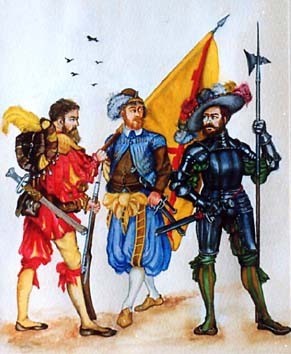 Voor hen die goede redenen hadden om de collaboratie te bevechten, was deze verwerpelijk. Het heeft de collaboratie inderdaad niet aan verfoeibare aspecten ontbroken. Niettemin hebben zich zowel aan Franse als aan Duitse zijde mensen in eer en geweten ingezet voor deze weg, waarvan zij dachten dat hij de juiste was, en die achteraf door de geschiedenis werd veroordeeld.
Voor hen die goede redenen hadden om de collaboratie te bevechten, was deze verwerpelijk. Het heeft de collaboratie inderdaad niet aan verfoeibare aspecten ontbroken. Niettemin hebben zich zowel aan Franse als aan Duitse zijde mensen in eer en geweten ingezet voor deze weg, waarvan zij dachten dat hij de juiste was, en die achteraf door de geschiedenis werd veroordeeld. 
 Le Testament espagnol de Koestler est un chef-d’oeuvre: la déréliction de l’homme, qui attend une exécution promise, les joies de lire dans cette geôle, espace exigu entre deux mondes (celui de la vie, qu’on va quitter, et celui, de l’“après”, inconnu et appréhendé), la fatalité de la mort dans un environnement ibérique, acceptée par les autres détenus, dont “le Poitrinaire”... A quinze ans, une littérature aussi forte laisse des traces. Pendant deux bonnes années, Koestler, pour moi, n’a été que ce prisonnier anglo-judéo-hongrois, pris dans la tourmente de la Guerre Civile espagnole, cet homme d’une gauche apparemment militante, dont on ne discernait plus tellement les contours quand s’évanouissait les vanités face à une mort qu’il pouvait croire imminente.
Le Testament espagnol de Koestler est un chef-d’oeuvre: la déréliction de l’homme, qui attend une exécution promise, les joies de lire dans cette geôle, espace exigu entre deux mondes (celui de la vie, qu’on va quitter, et celui, de l’“après”, inconnu et appréhendé), la fatalité de la mort dans un environnement ibérique, acceptée par les autres détenus, dont “le Poitrinaire”... A quinze ans, une littérature aussi forte laisse des traces. Pendant deux bonnes années, Koestler, pour moi, n’a été que ce prisonnier anglo-judéo-hongrois, pris dans la tourmente de la Guerre Civile espagnole, cet homme d’une gauche apparemment militante, dont on ne discernait plus tellement les contours quand s’évanouissait les vanités face à une mort qu’il pouvait croire imminente.  Ce n’est pas seulement par l’effet tonifiant du blanc-seing de Piron, dans le microcosme néo-droitiste bruxellois en gestation à l’époque, que Koestler revenait au premier plan de mes préoccupations. En première année de philologie germanique aux Facultés Universitaires Saint-Louis, il me fallait lire, dès le second trimestre, des romans anglais. Mon programme: Orwell, Huxley, Koestler et D. H. Lawrence. L’un des romans sélectionnés devait être présenté oralement: le sort a voulu que, pour moi, ce fut Darkness at Noon (Le zéro et l’infini), récit d’un procès politique dans le style des grandes purges staliniennes des années 30. Le roman, mettant en scène le “dissident” Roubachov face à ses inquisiteurs, est bien davantage qu’une simple dénonciation du stalinisme par un adepte de la dissidence boukharinienne, zinovievienne ou trotskiste. Toute personne qui entre en politique, entre obligatoirement au service d’un appareil, perclus de rigidités, même si ce n’est guère apparent au départ, pour le croyant, pour le militant, comme l’avoue d’ailleurs Koestler après avoir viré sa cuti. A parti d’un certain moment, le croyant se trouvera en porte-à-faux, tout à la fois face à la politique officielle du parti, face aux promesses faites aux militants de base mais non tenables, face à une réalité, sur laquelle le parti a projeté ses dogmes ou ses idées, mais qui n’en a cure. Le croyant connaîtra alors un profond malaise, il reculera et hésitera, devant les nouveaux ordres donnés, ou voudra mettre la charrue avant les boeufs en basculant dans le zèle révolutionnaire. Il sera soit exclu ou marginalisé, comme aujourd’hui dans les partis dits “démocratiques” ainsi que chez leurs challengeurs (car c’est kif-kif-bourricot!). Dans un parti révolutionnaire comme le parti bolchevique en Russie, la lenteur d’adaptation aux nouvelles directives de la centrale, la fidélité à de vieilles amitiés ou de vieilles traditions de l’époque héroïque de la révolution d’Octobre 1917 ou de la clandestinité pré-révolutionnaire, condamne le “lent” ou le nostalgique à être broyé par une machine en marche qui ne peut ni ralentir ni cesser d’aller de l’avant. La logique des procès communistes voulait que les accusés reconnaissent que leur lenteur et leur nostalgie entravaient le déploiement de la révolution dans le monde, mettait le socialisme construit dans un seul pays (l’URSS) en danger donc, ipso facto, que ces “vertus” de vieux révolutionnaires étaient forcément des “crimes” risquant de ruiner les acquis réellement existants des oeuvres du parti. En conséquence, ces “vertus” relevaient de la complicité avec les ennemis extérieurs de l’Union Soviétique (ou, lors des procès de Prague, de la nouvelle Tchécoslovaquie rouge). Lenteur et nostalgie étaient donc objectivement parlant des vices contre-révolutionnaires. Koestler a vécu de près, au sein des cellules du Komintern, ce type de situation. Pour lui, le pire a été l’entrée en dissidence, à son corps défendant, de Willi Münzenberg, communiste allemand chargé par le Komintern d’organiser depuis son exil parisien une résistance planétaire contre le fascisme et le nazisme. Pour y parvenir, Münzenberg avait reçu d’abord l’ordre de créer des “fronts populaires”, avec les socialistes et les sociaux-démocrates, comme en Espagne et en France. Mais la centrale moscovite change d’avis et pose trotskistes et socialistes comme des ennemis sournois de la révolution: Münzenberg entre en disgrâce, parce qu’il ne veut pas briser l’appareil qu’il a patiemment construit à Paris et tout recommencer à zéro; il refuse d’aller s’expliquer à Moscou, de crainte de subir le sort de son compatriote communiste allemand Neumann, épuré en Union Soviétique (sa veuve, Margarete Buber-Neumann, rejoindra Koestler dans son combat anti-communiste d’après guerre). Münzenberg a refusé d’obéir, de s’aligner sans pour autant passer au service de ses ennemis nationaux-socialistes. Dans le roman Darkness at Noon/Le zéro et l’infini, Roubachov n’est ni un désobéissant ni un traître: il proteste de sa fidélité à l’idéal révolutionnaire. Mais suite au travail de sape des inquisiteurs, il finit par admettre que ses positions, qu’il croit être de fidélité, sont une entorse à la bonne marche de la révolution mondiale en cours, qu’il est un complice objectif des ennemis de l’intérieur et de l’extérieur et que son élimination sauvera peut-être de l’échec final la révolution, à laquelle il a consacré toute sa vie et tous ses efforts. (Sur l’itinéraire de Willi Münzenberg, on se rapportera utilement aux pages que lui consacre François Furet dans Le passé d’une illusion – Essai sur l’idée communiste au XX° siècle, Laffont/Calmann-Lévy, 1995).
Ce n’est pas seulement par l’effet tonifiant du blanc-seing de Piron, dans le microcosme néo-droitiste bruxellois en gestation à l’époque, que Koestler revenait au premier plan de mes préoccupations. En première année de philologie germanique aux Facultés Universitaires Saint-Louis, il me fallait lire, dès le second trimestre, des romans anglais. Mon programme: Orwell, Huxley, Koestler et D. H. Lawrence. L’un des romans sélectionnés devait être présenté oralement: le sort a voulu que, pour moi, ce fut Darkness at Noon (Le zéro et l’infini), récit d’un procès politique dans le style des grandes purges staliniennes des années 30. Le roman, mettant en scène le “dissident” Roubachov face à ses inquisiteurs, est bien davantage qu’une simple dénonciation du stalinisme par un adepte de la dissidence boukharinienne, zinovievienne ou trotskiste. Toute personne qui entre en politique, entre obligatoirement au service d’un appareil, perclus de rigidités, même si ce n’est guère apparent au départ, pour le croyant, pour le militant, comme l’avoue d’ailleurs Koestler après avoir viré sa cuti. A parti d’un certain moment, le croyant se trouvera en porte-à-faux, tout à la fois face à la politique officielle du parti, face aux promesses faites aux militants de base mais non tenables, face à une réalité, sur laquelle le parti a projeté ses dogmes ou ses idées, mais qui n’en a cure. Le croyant connaîtra alors un profond malaise, il reculera et hésitera, devant les nouveaux ordres donnés, ou voudra mettre la charrue avant les boeufs en basculant dans le zèle révolutionnaire. Il sera soit exclu ou marginalisé, comme aujourd’hui dans les partis dits “démocratiques” ainsi que chez leurs challengeurs (car c’est kif-kif-bourricot!). Dans un parti révolutionnaire comme le parti bolchevique en Russie, la lenteur d’adaptation aux nouvelles directives de la centrale, la fidélité à de vieilles amitiés ou de vieilles traditions de l’époque héroïque de la révolution d’Octobre 1917 ou de la clandestinité pré-révolutionnaire, condamne le “lent” ou le nostalgique à être broyé par une machine en marche qui ne peut ni ralentir ni cesser d’aller de l’avant. La logique des procès communistes voulait que les accusés reconnaissent que leur lenteur et leur nostalgie entravaient le déploiement de la révolution dans le monde, mettait le socialisme construit dans un seul pays (l’URSS) en danger donc, ipso facto, que ces “vertus” de vieux révolutionnaires étaient forcément des “crimes” risquant de ruiner les acquis réellement existants des oeuvres du parti. En conséquence, ces “vertus” relevaient de la complicité avec les ennemis extérieurs de l’Union Soviétique (ou, lors des procès de Prague, de la nouvelle Tchécoslovaquie rouge). Lenteur et nostalgie étaient donc objectivement parlant des vices contre-révolutionnaires. Koestler a vécu de près, au sein des cellules du Komintern, ce type de situation. Pour lui, le pire a été l’entrée en dissidence, à son corps défendant, de Willi Münzenberg, communiste allemand chargé par le Komintern d’organiser depuis son exil parisien une résistance planétaire contre le fascisme et le nazisme. Pour y parvenir, Münzenberg avait reçu d’abord l’ordre de créer des “fronts populaires”, avec les socialistes et les sociaux-démocrates, comme en Espagne et en France. Mais la centrale moscovite change d’avis et pose trotskistes et socialistes comme des ennemis sournois de la révolution: Münzenberg entre en disgrâce, parce qu’il ne veut pas briser l’appareil qu’il a patiemment construit à Paris et tout recommencer à zéro; il refuse d’aller s’expliquer à Moscou, de crainte de subir le sort de son compatriote communiste allemand Neumann, épuré en Union Soviétique (sa veuve, Margarete Buber-Neumann, rejoindra Koestler dans son combat anti-communiste d’après guerre). Münzenberg a refusé d’obéir, de s’aligner sans pour autant passer au service de ses ennemis nationaux-socialistes. Dans le roman Darkness at Noon/Le zéro et l’infini, Roubachov n’est ni un désobéissant ni un traître: il proteste de sa fidélité à l’idéal révolutionnaire. Mais suite au travail de sape des inquisiteurs, il finit par admettre que ses positions, qu’il croit être de fidélité, sont une entorse à la bonne marche de la révolution mondiale en cours, qu’il est un complice objectif des ennemis de l’intérieur et de l’extérieur et que son élimination sauvera peut-être de l’échec final la révolution, à laquelle il a consacré toute sa vie et tous ses efforts. (Sur l’itinéraire de Willi Münzenberg, on se rapportera utilement aux pages que lui consacre François Furet dans Le passé d’une illusion – Essai sur l’idée communiste au XX° siècle, Laffont/Calmann-Lévy, 1995).  Reste à évoquer le rapport entre Koestler et la France. Ce pays est, dans l’entre-deux-guerres, le refuge idéal des antifascistes et antinazis de toutes obédiences. Koestler y pérègrine entre Paris et la Côte d’Azur. La France est la patrie de la révolution et Koestler se perçoit comme un révolutionnaire, qui poursuit l’idéal 150 ans après la prise de la Bastille, devant des ennemis tenaces, apparemment plus coriaces que les armées en dentelles de la Prusse et de l’Autriche à Valmy ou que les émigrés de Coblence. Cet engouement pour la France s’effondre en octobre 1939: considéré comme sujet hongrois et comme journaliste allemand, Koestler est arrêté et interné dans un camp de concentration en lisière des Pyrénées. Il y restera quatre mois. Cette mésaventure, ainsi que sa seconde arrestation en mai 1940, son évasion et son périple dans la France en débâcle, généreront un deuxième chef-d’oeuvre de littérature carcérale et autobiographique, Scum of the Earth (La lie de la Terre). Cet ouvrage est une dénonciation de l’inhumanité du système concentrationnaire de la Troisième République, de son absence totale d’hygiène et un témoignage poignant sur la mort et la déréliction de quelques antifascistes allemands, italiens et espagnols dans ces camps sordides. Avant 1945, la littérature carcérale/concentrationnaire dénonce, non pas le Troisième Reich, mais la Troisième République. Il y a Koestler, qui édite son livre en Angleterre et donne à l’allié français vaincu une très mauvaise presse, mais il y a, en Belgique, les souvenirs des internés du Vernet, arrêtés par la Sûreté belge en mai 1940 et livrés aux soudards français qui les accompagneront en les battant et en les humiliant jusqu’à la frontière espagnole. Eux aussi iront crever de faim, rongés par une abondante vermine, en bordure des Pyrénées. Ce scandale a été largement exploité en Belgique pendant les premiers mois de la deuxième occupation allemande, avec les témoignages de Léon Degrelle (Ma guerre en prison), du rexiste Serge Doring (L’école de la douleur – Souvenirs d’un déporté politique), des militants flamands René Lagrou (Wij Verdachten) et Ward Hermans. La description des lieux par Doring correspond bien à celle que nous livre Koestler. L’un de leurs compagnons d’infortune des trains fantômes partis de Bruxelles, le communiste saint-gillois Lucien Monami n’aura pas l’occasion de rédiger le récit de ses malheurs: il sera assassiné par des soldats français ivres à Abbeville, aux côtés des solidaristes Van Severen et Rijckoort. La lie de la terre rend Koestler impopulaire en France dans l’immédiat après-guerre. En effet, cet ouvrage prouve que le dérapage concentrationnaire n’est pas une exclusivité du Troisième Reich ou de l’URSS stalinienne, que les antifascistes et les rescapés des Brigades Internationales ou des milices anarchistes ibériques antifranquistes ont d’abord été victimes du système concentrationnaire français avant de l’être du système national-socialiste ou, éventuellement, stalinien, que la revendication d’humanisme de la “République” est donc un leurre, que la “saleté” et le manque total d’hygiène reprochés aux services policiers et pénitentiaires français sont attestés par un témoignage bien charpenté et largement lu chez les alliés d’Outre-Manche à l’époque. Les choses s’envenimeront dans les années chaudes et quasi insurrectionnelles de 1947-48, où Koestler évoque la possibilité d’une prise de pouvoir communiste en France et appelle à soutenir De Gaulle. Dans ses mémoires, il décrit Jean-Paul Sartre et Simone de Beauvoir, avec leur entourage, en des propos peu amènes, se gaussant grassement de leurs dogmatismes, de leurs manies, de leur laideur et de leur ivrognerie. La rupture a lieu définitivement en 1949, quand Koestler participe à un recueil collectif, Le Dieu des Ténèbres, publié dans une collection dirigée par Raymond Aron. La gauche française, communistes en tête, mène campagne contre le “rénégat” Koestler et surtout contre la publication en traduction française de Darkness at Noon (Le Zéro et l’Infini). Pire: l’impression du recueil d’articles de Koestler, intitulé Le Yogi et le commissaire, est suspendue sur ordre du gouvernement français pour “inopportunisme politique”! Une vengeance pour La lie de la Terre?
Reste à évoquer le rapport entre Koestler et la France. Ce pays est, dans l’entre-deux-guerres, le refuge idéal des antifascistes et antinazis de toutes obédiences. Koestler y pérègrine entre Paris et la Côte d’Azur. La France est la patrie de la révolution et Koestler se perçoit comme un révolutionnaire, qui poursuit l’idéal 150 ans après la prise de la Bastille, devant des ennemis tenaces, apparemment plus coriaces que les armées en dentelles de la Prusse et de l’Autriche à Valmy ou que les émigrés de Coblence. Cet engouement pour la France s’effondre en octobre 1939: considéré comme sujet hongrois et comme journaliste allemand, Koestler est arrêté et interné dans un camp de concentration en lisière des Pyrénées. Il y restera quatre mois. Cette mésaventure, ainsi que sa seconde arrestation en mai 1940, son évasion et son périple dans la France en débâcle, généreront un deuxième chef-d’oeuvre de littérature carcérale et autobiographique, Scum of the Earth (La lie de la Terre). Cet ouvrage est une dénonciation de l’inhumanité du système concentrationnaire de la Troisième République, de son absence totale d’hygiène et un témoignage poignant sur la mort et la déréliction de quelques antifascistes allemands, italiens et espagnols dans ces camps sordides. Avant 1945, la littérature carcérale/concentrationnaire dénonce, non pas le Troisième Reich, mais la Troisième République. Il y a Koestler, qui édite son livre en Angleterre et donne à l’allié français vaincu une très mauvaise presse, mais il y a, en Belgique, les souvenirs des internés du Vernet, arrêtés par la Sûreté belge en mai 1940 et livrés aux soudards français qui les accompagneront en les battant et en les humiliant jusqu’à la frontière espagnole. Eux aussi iront crever de faim, rongés par une abondante vermine, en bordure des Pyrénées. Ce scandale a été largement exploité en Belgique pendant les premiers mois de la deuxième occupation allemande, avec les témoignages de Léon Degrelle (Ma guerre en prison), du rexiste Serge Doring (L’école de la douleur – Souvenirs d’un déporté politique), des militants flamands René Lagrou (Wij Verdachten) et Ward Hermans. La description des lieux par Doring correspond bien à celle que nous livre Koestler. L’un de leurs compagnons d’infortune des trains fantômes partis de Bruxelles, le communiste saint-gillois Lucien Monami n’aura pas l’occasion de rédiger le récit de ses malheurs: il sera assassiné par des soldats français ivres à Abbeville, aux côtés des solidaristes Van Severen et Rijckoort. La lie de la terre rend Koestler impopulaire en France dans l’immédiat après-guerre. En effet, cet ouvrage prouve que le dérapage concentrationnaire n’est pas une exclusivité du Troisième Reich ou de l’URSS stalinienne, que les antifascistes et les rescapés des Brigades Internationales ou des milices anarchistes ibériques antifranquistes ont d’abord été victimes du système concentrationnaire français avant de l’être du système national-socialiste ou, éventuellement, stalinien, que la revendication d’humanisme de la “République” est donc un leurre, que la “saleté” et le manque total d’hygiène reprochés aux services policiers et pénitentiaires français sont attestés par un témoignage bien charpenté et largement lu chez les alliés d’Outre-Manche à l’époque. Les choses s’envenimeront dans les années chaudes et quasi insurrectionnelles de 1947-48, où Koestler évoque la possibilité d’une prise de pouvoir communiste en France et appelle à soutenir De Gaulle. Dans ses mémoires, il décrit Jean-Paul Sartre et Simone de Beauvoir, avec leur entourage, en des propos peu amènes, se gaussant grassement de leurs dogmatismes, de leurs manies, de leur laideur et de leur ivrognerie. La rupture a lieu définitivement en 1949, quand Koestler participe à un recueil collectif, Le Dieu des Ténèbres, publié dans une collection dirigée par Raymond Aron. La gauche française, communistes en tête, mène campagne contre le “rénégat” Koestler et surtout contre la publication en traduction française de Darkness at Noon (Le Zéro et l’Infini). Pire: l’impression du recueil d’articles de Koestler, intitulé Le Yogi et le commissaire, est suspendue sur ordre du gouvernement français pour “inopportunisme politique”! Une vengeance pour La lie de la Terre? Aujourd’hui, il faut aussi relire Koestler quand on aborde la question judéo-israélienne. Les séjours de Koestler en Palestine, à l’époque du sionisme balbutiant, ont conduit, en gros, à une déception. Ce sionisme, idéologiquement séduisant dans les Burschenschaften juives de Vienne, où le niveau intellectuel était très élevé, s’avérait décevant et caricatural dans les kibboutzim des campagnes galiléennes ou judéennes et dans les nouvelles villes émergentes du Protectorat britannique de Palestine en voie de judaïsation. Même si Koestler fut le premier inventeur de mots croisés en hébreu pour une feuille juive locale, l’option en faveur de cette langue reconstituée lui déplaisait profondément: il estimait qu’ainsi, le futur citoyen palestinien de confession ou d’origine juive se détachait des vieilles cultures européennes, essentiellement celles de langues germaniques ou slaves, qui disposaient d’une riche littérature et d’une grande profondeur temporelle, tout en n’adoptant pas davantage l’arabe. Ce futur citoyen judéo-palestinien néo-hébraïsant adoptait une sorte d’esperanto largement incompris dans le reste du monde: selon le raisonnement de Koestler, le juif, en s’immergeant jusqu’à l’absurde dans l’idéologie sioniste, devenue caricaturale, cessait d’être un être passe-partout, un cosmopolite bon teint, à l’aise dans tous les milieux cultivés de la planète. L’hébraïsation transformait l’immigré juif, cherchant à échapper aux ghettos, aux pogroms ou aux persécutions, en un plouc baraguinant et marginalisé sur une planète dont il n’allait plus comprendre les ressorts. Plus tard, dans les années 70, Koestler rédigera La treizième tribu un ouvrage ruinant le mythe sioniste du “retour”, en affirmant que la masse des juifs russes et roumains n’avaient aucune racine en Palestine mais descendaient d’une tribu turco-tatar, les Khazars, convertie au judaïsme au haut moyen âge. Poser le mythe du “retour” comme fallacieux est l’axiome majeur de la nouvelle tradition “post-sioniste” en Israël aujourd’hui, sévèrement combattue par les droites israéliennes, dont elle ruine le mythe mobilisateur.
Aujourd’hui, il faut aussi relire Koestler quand on aborde la question judéo-israélienne. Les séjours de Koestler en Palestine, à l’époque du sionisme balbutiant, ont conduit, en gros, à une déception. Ce sionisme, idéologiquement séduisant dans les Burschenschaften juives de Vienne, où le niveau intellectuel était très élevé, s’avérait décevant et caricatural dans les kibboutzim des campagnes galiléennes ou judéennes et dans les nouvelles villes émergentes du Protectorat britannique de Palestine en voie de judaïsation. Même si Koestler fut le premier inventeur de mots croisés en hébreu pour une feuille juive locale, l’option en faveur de cette langue reconstituée lui déplaisait profondément: il estimait qu’ainsi, le futur citoyen palestinien de confession ou d’origine juive se détachait des vieilles cultures européennes, essentiellement celles de langues germaniques ou slaves, qui disposaient d’une riche littérature et d’une grande profondeur temporelle, tout en n’adoptant pas davantage l’arabe. Ce futur citoyen judéo-palestinien néo-hébraïsant adoptait une sorte d’esperanto largement incompris dans le reste du monde: selon le raisonnement de Koestler, le juif, en s’immergeant jusqu’à l’absurde dans l’idéologie sioniste, devenue caricaturale, cessait d’être un être passe-partout, un cosmopolite bon teint, à l’aise dans tous les milieux cultivés de la planète. L’hébraïsation transformait l’immigré juif, cherchant à échapper aux ghettos, aux pogroms ou aux persécutions, en un plouc baraguinant et marginalisé sur une planète dont il n’allait plus comprendre les ressorts. Plus tard, dans les années 70, Koestler rédigera La treizième tribu un ouvrage ruinant le mythe sioniste du “retour”, en affirmant que la masse des juifs russes et roumains n’avaient aucune racine en Palestine mais descendaient d’une tribu turco-tatar, les Khazars, convertie au judaïsme au haut moyen âge. Poser le mythe du “retour” comme fallacieux est l’axiome majeur de la nouvelle tradition “post-sioniste” en Israël aujourd’hui, sévèrement combattue par les droites israéliennes, dont elle ruine le mythe mobilisateur. 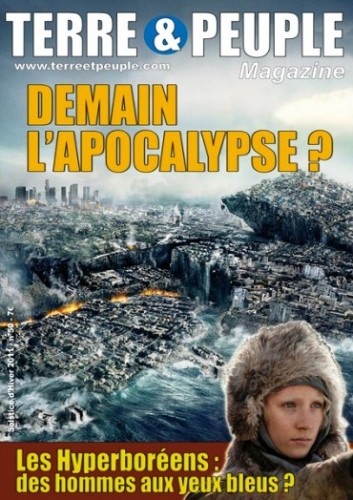
 Dans un livre d’entretien conduit par la journaliste Pauline Lecomte, « Le choc de l’histoire » publié aux éditions « Via Romana », Venner se penche une nouvelle fois sur notre époque en crise. On retrouvera en filigrane la grille d’analyse affûtée qu’il avait déjà exposée dans son ouvrage « Le siècle de 1914 », mais cette fois pour en dépasser le cadre restreint de la discipline historique.
Dans un livre d’entretien conduit par la journaliste Pauline Lecomte, « Le choc de l’histoire » publié aux éditions « Via Romana », Venner se penche une nouvelle fois sur notre époque en crise. On retrouvera en filigrane la grille d’analyse affûtée qu’il avait déjà exposée dans son ouvrage « Le siècle de 1914 », mais cette fois pour en dépasser le cadre restreint de la discipline historique. 
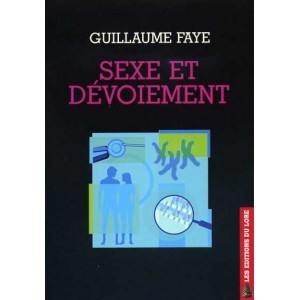

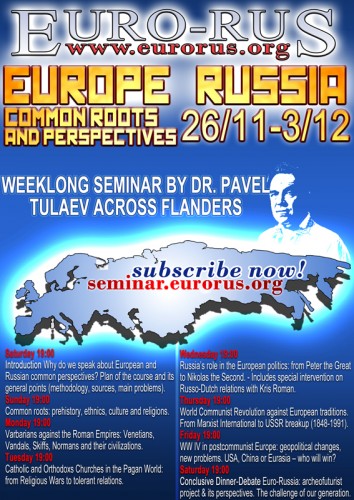
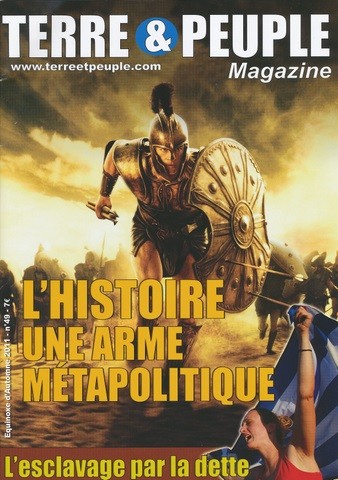


 La società in cui viviamo la nostra esistenza conosce oggi come carattere qualificante quella situazione di unidimensionalità che si è convenuto chiamare “dittatura dell'economia” e che può essere ricondotta all'ipertrofia patologica di una funzione sociale nel quadro di un predominio culturale degli ideali borghesi. Caratteristica a sua volta distintiva di questa ipertrofia nell'insieme dei suoi effetti secondari, è la tendenza a fagocitare successivamente le varie espressioni della realtà umana. Nietzsche scriveva già, in una pagina di Aurora: “La nostra epoca che parla molto di economia è ben soffocante; essa soffoca lo spirito”.
La società in cui viviamo la nostra esistenza conosce oggi come carattere qualificante quella situazione di unidimensionalità che si è convenuto chiamare “dittatura dell'economia” e che può essere ricondotta all'ipertrofia patologica di una funzione sociale nel quadro di un predominio culturale degli ideali borghesi. Caratteristica a sua volta distintiva di questa ipertrofia nell'insieme dei suoi effetti secondari, è la tendenza a fagocitare successivamente le varie espressioni della realtà umana. Nietzsche scriveva già, in una pagina di Aurora: “La nostra epoca che parla molto di economia è ben soffocante; essa soffoca lo spirito”. 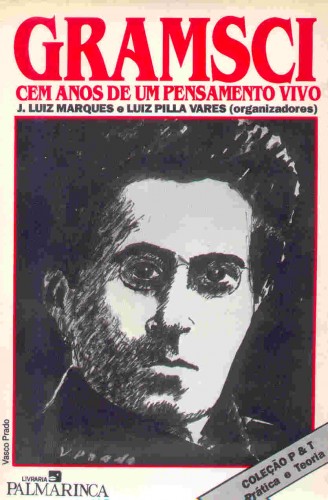
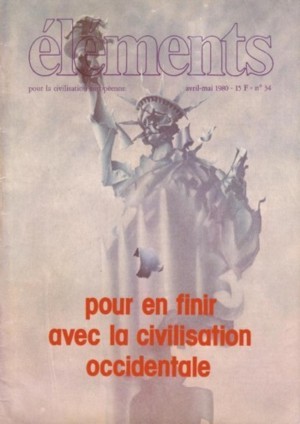 Un avvenimento considerevole si produce nel mondo contemporaneo, un avvenimento lento, silenzioso, invisibile: le culture, le civiltà, le nazioni, i paesi vengono fusi progressivamente in una struttura tiepida che trascende le divisioni destra/sinistra, est/ovest, nord/sud, che assorbe le distinzioni politiche e ideologiche, che pialla le geografie, che pietrifica la storia.
Un avvenimento considerevole si produce nel mondo contemporaneo, un avvenimento lento, silenzioso, invisibile: le culture, le civiltà, le nazioni, i paesi vengono fusi progressivamente in una struttura tiepida che trascende le divisioni destra/sinistra, est/ovest, nord/sud, che assorbe le distinzioni politiche e ideologiche, che pialla le geografie, che pietrifica la storia.